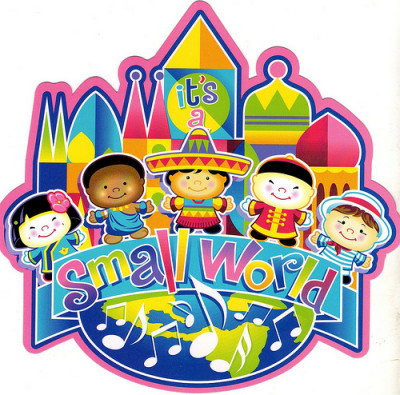Address
39 Fen End Lane.
Spalding, Lincs. PE12 6AD.
This is the first of two blogs that will show you why it is a small world after all.
The world and its economy is far more connected that you might imagine. And while that does have some negative consequences, it also provides considerable benefit for the general growth of the economy and that is particularly rewarding for long term investors.

Normally, I tend to go a little ‘off-piste’ at this point in the hope that I can maintain your interest. However, in this case I am fortunate that, 20 years ago, three Albright college students did that for me when they dreamt up a game that very effectively demonstrates how complex systems, like the economy, benefit from a network effect. It is known as the ‘Six Degrees of Kevin Bacon’.
The aim of the game is to discover how connected any Hollywood actor is to Kevin Bacon – the hero of such cinematic treats as ‘Tremors’, which I admit is only good because it is so bad. The idea is to work out the shortest number of links or ‘degrees’ between any random actor and Kevin.
If the actor and Mr Bacon have appeared in the same movie, that’s one degree of separation. If the random actor was not in a film with our star, but appeared in another movie with an actor who has appeared with him, that’s two degrees – and so on.
So, you might ask, how well connected is the movie world in this way?
In his excellent book, ‘The Origin of Wealth’, Eric D. Beinhocker describes a study using data from several US universities that show the highest degree or ‘Bacon’ number for any American actor is 4. He goes on to state, ‘90% of the roughly 570,000 actors in the world had some connection to Bacon, the highest Bacon number in the world was ten, and 85% had a number of three or less.’
Those are pretty amazing numbers. And it shows that the movie world and, by extension, the economic world is far more ‘connected’ than you would expect if the links were just random.
Why is this the case?
When you have lots of different clusters of people linked by different themes, such as their profession and then have random links between those clusters you get much better connections than by random chance alone.
It is possible to quantify this mathematically and two gentlemen Newman and Watts have shown that in a population of 1000 people if each person has 10 friends and 25% of them are random, then the average degree of separation is only 3.6. If each person has 10 friends and none are random, it’s 50!
In light of those numbers, it’s easier to see how social media companies like Facebook grew so quickly using the biggest economic network, the internet. And Facebook uses its considerable knowledge of its own network structure and its connectivity to entice advertisers. It also, in part, explains some of the extraordinary valuations of companies in the sector and why a simple application like Snapchat spurned a $3 billion offer from Facebook – but I stress, only ‘in part’. Some of these companies are priced as though they will achieve networking perfection and late investors are very likely to be disappointed.
And, of course, not all network effects are beneficial – the recent financial crisis laid bare the dangers of contagion and that in extreme environments, different types of investment are far more linked that we would like or that traditional theory suggests. Which leads me back to my previous blog about volatility. Simply put, market prices and movements are showing real signs of complacency.
I’ll leave you with a short video of Kevin Bacon, who given his networking credentials fronts the current advertising campaign of the EE mobile and broadband network. Here he is challenging Jamie ‘never wash your hands’ Oliver to make the best bacon sandwich.
And I’d really appreciate it If you could help me add to the ‘small world’ network effect by clicking the ‘like’ button at the end of this blog.
Please remember:
- past performance is no guide or guarantee of future returns;
- the value of stock market investments can rise and fall over time, so it is quite possible to get back less than what you put in, depending upon timing